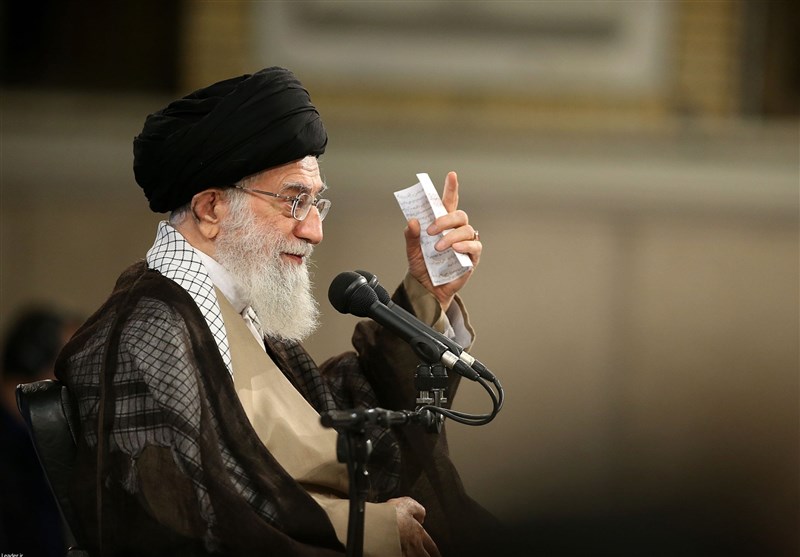Leader Urges Iran Parliament’s Independent Decision on Int’l Treaties


Leader of the Islamic Ummah and Oppressed Imam Ayatollah Seyed Ali Khamenei called on Iranian lawmakers to act self-reliantly when it comes to ratifying treaties invented for the good of big powers, saying the positive aspects of such conventions are not enough for Iran to join them.
In a meeting with members of the parliament on Wednesday, Ayatollah Khamenei urged caution in ratifying the foreign conventions, saying such so-called international treaties are initially developed by the think tanks of the big powers in order to fulfill their interests.
When the governments allied with or intimidated by the big powers join those agreements, other independents states, such as Iran, will be severely hammered if they do not agree to joint them, the Leader said.
As regards the correct approach to dealing with such conventions, Ayatollah Khamenei said, “… the Islamic consultative assembly (the parliament) which is grown, mature and wise, must make laws independently on issues like countering terrorism or countering money laundering.”
“While some clauses of the international treaties may be good, it is not at all necessary that, by referring to those clauses, we should join the conventions whose real purposes are unknown to us or which we know have problems,” Ayatollah Khamenei added.
The comments came some two weeks after the parliament passed a law that allows Iran to join the United Nations Convention against Transnational Organized Crime (UNTOC), but decided to put on hold debates on Tehran’s accession to the Financial Action Task Force (FATF) for two months.
Established in 1989, the Financial Action Task Force is an inter-governmental body purportedly aimed at setting standards and promoting effective implementation of legal, regulatory and operational measures for combating money laundering and terrorist financing.
Elsewhere in the meeting, Ayatollah Khamenei called on the parliamentarians to focus on the value and efficacy of the measures that they pass rather than caring about quantitative indices, urging emphasis on the country’s overriding priorities and avoidance of law-making on unimportant issues.
The Leader recommended thst the legislators pass “practical” laws and avoid ratifying decisions that are against the country’s interests, stressing that law-making process should focus on Iran’s top priority, namely “settlement of the economic woes.”
Chiding some Iranian legislators for coming under the influence of Western viewpoints on family-related issues, the Leader underscored that lawmakers must genuinely try to solve the problems.


“The Western lifestyle is in contradiction to the true essence of family,” the Leader deplored, urging the lawmakers to disregard the Western viewpoint on women, children and parents when it comes to addressing the problems of Iranian families.
Ayatollah Khamenei then made a reference to the US administration’s new immigration policy and its move to separate children from their migrant parents at the border, and said, “The Americans are separating the children from their migrant parents with full wickedness.”
Elsewhere, highlighting the vicious nature of world bullies in all arenas, the Leader deplored the deadly military campaign that a number of countries with advanced weapons have launched against Yemen to seize a port from the oppressed people of the country.
The warplanes and warships of a Saudi-led coalition have been pounding Yemen’s western city of Hudaydah since June 13 to seize the strategic port, which is controlled by the Houthi Ansarullah forces.
Hudaydah port is the main route for essential goods into Yemen, where 22 million people are in need of humanitarian aid and 8.4 million face starvation, according to the United Nations, which says the figure could reach 10 million by year end.
The UN has warned that in a worst-case scenario, the battle could cost up to 250,000 lives and cut off aid supplies to millions of people.
Since March 2015, Saudi Arabia and some of its Arab allies have been carrying out airstrikes against the Houthi Ansarullah movement in an attempt to restore power to fugitive former president Abd Rabbuh Mansour Hadi, a close ally of Riyadh.







